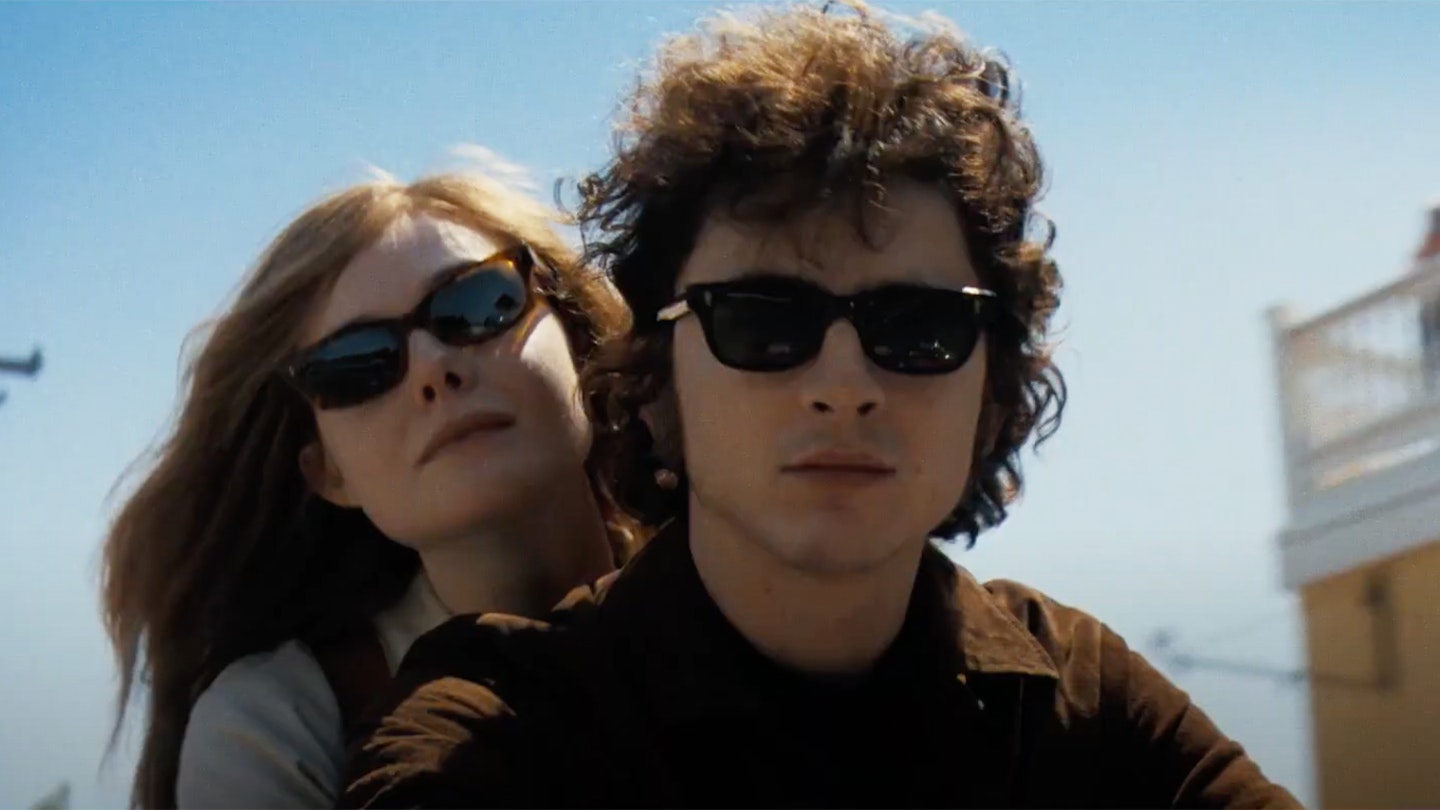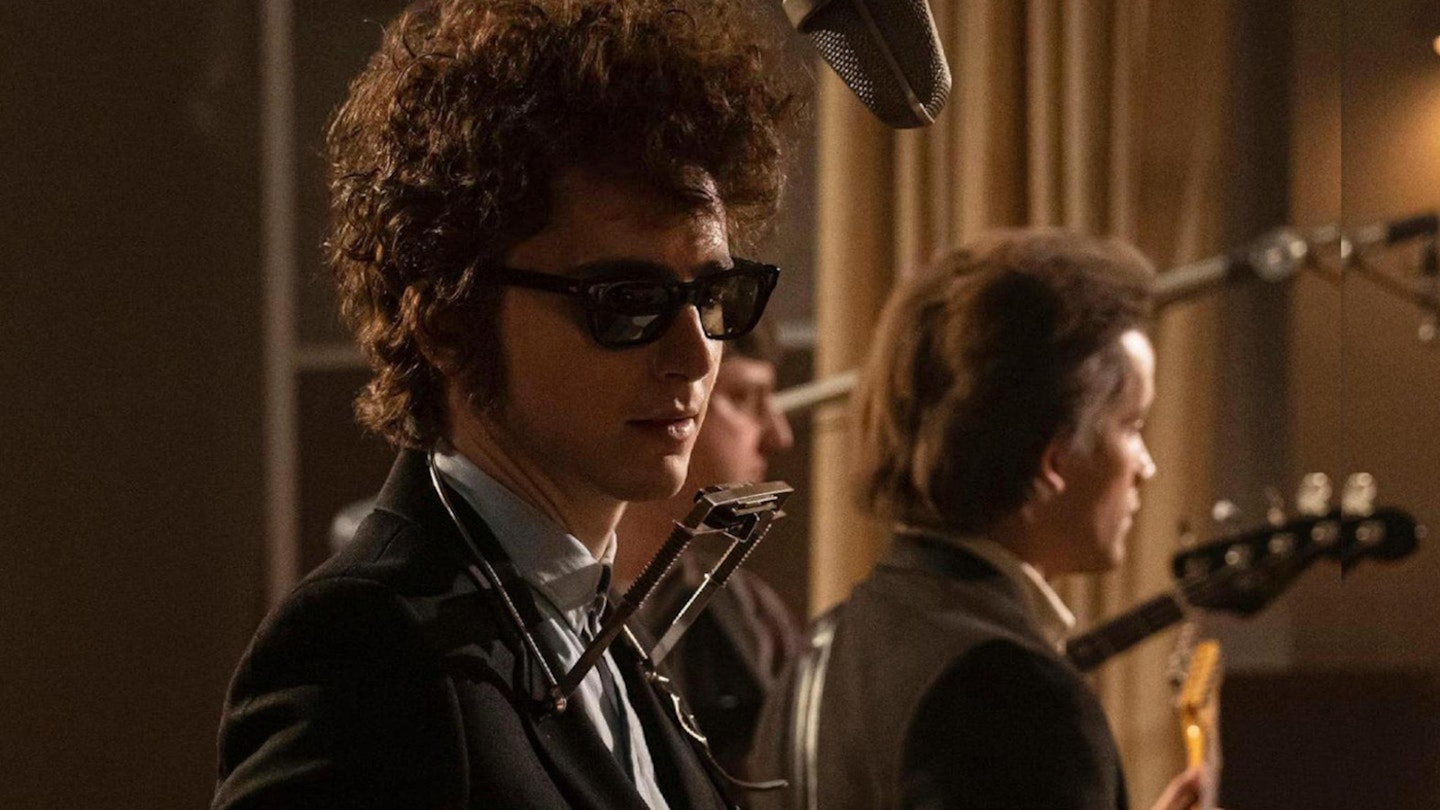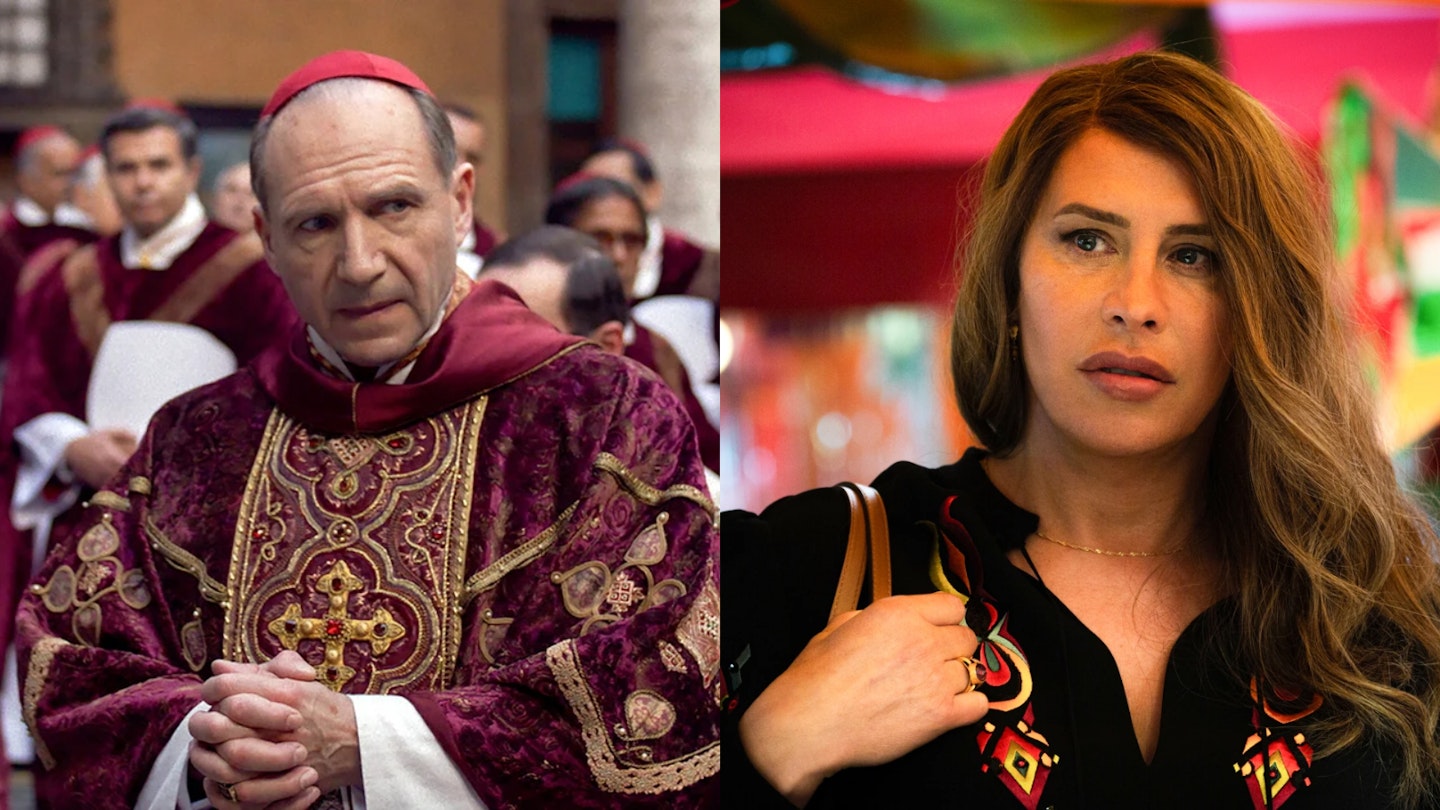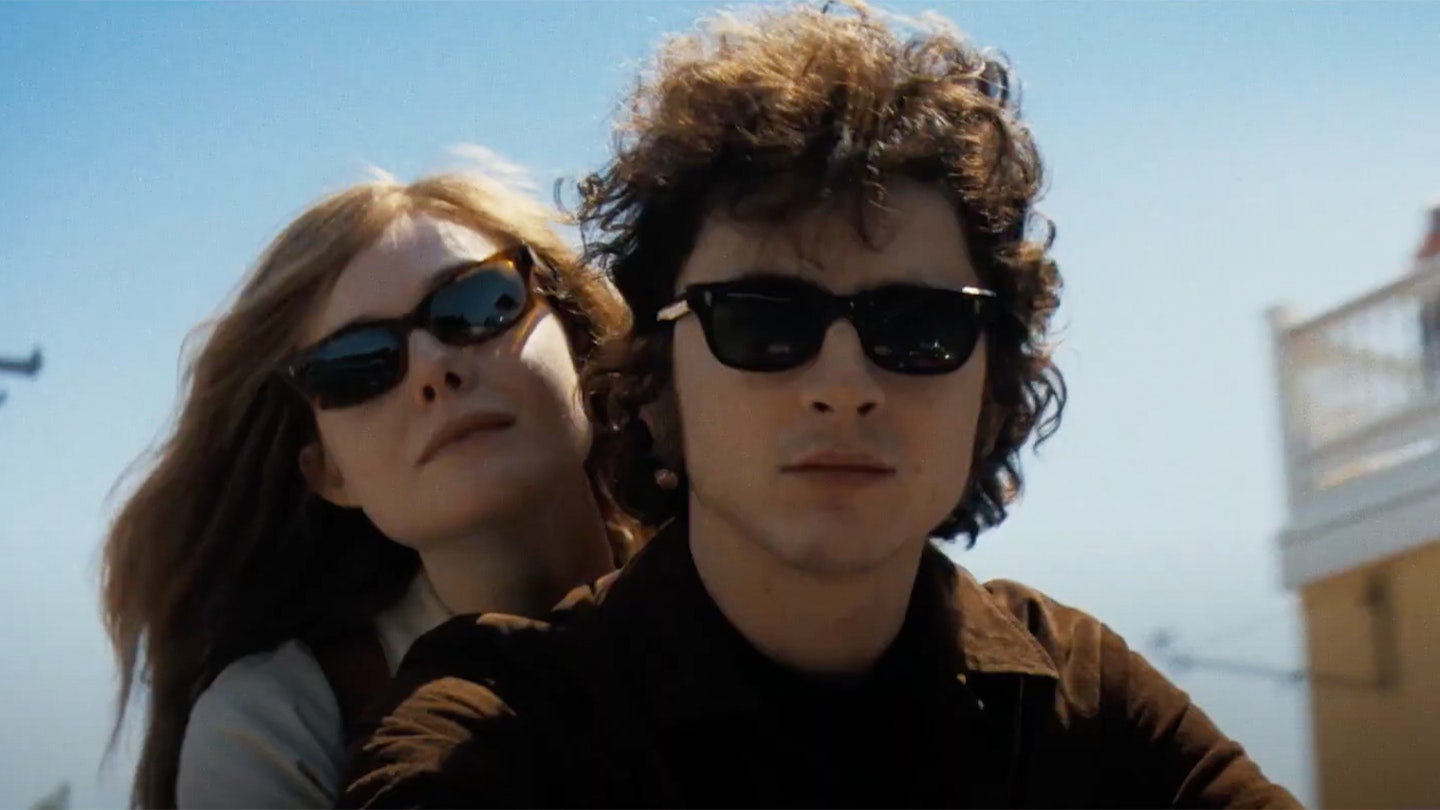The Bob Dylan Cinematic Universe is a-changing. Dozens of films about the legendary singer-songwriter already exist — including two documentaries by Martin Scorsese, the experimental 2007 drama I’m Not There from Todd Haynes (which saw no fewer than six actors take on Dylan’s famous drawl), and the bizarre 2003 drama Masked And Anonymous, in which Dylan played a version of himself and served as co-scribe, writing under the pseudonym ‘Sergei Petrov’.

There have been many, many ballads of this thin man. This latest effort comes from James Mangold, the filmmaker whose 2005 Johnny Cash film Walk The Line inspired the music biopic parody Walk Hard: The Dewey Cox Story, the standard by which all music biopics must now be judged. To its credit, A Complete Unknown deftly avoids such clichés. (There is no, “That’s when I learned Quaaludes and waterskiing do not mix!” equivalent line here.)
Chalamet’s musical talent is unimpeachable, his renditions gazed upon by many reverent ‘listening faces’...
It is, instead, a straightforward, clear-eyed musical drama. It begins in 1961 — evoking the Coen brothers’ Dylan-adjacent Inside Llewyn Davis — with a young Bob Dylan (Timothée Chalamet) looking to pay tribute to his hospitalised folk-singing hero Woody Guthrie (Scoot McNairy). Soon he nestles under the wing of veteran folk singer Pete Seeger (Edward Norton) and finds creative and/or romantic connections with Joan Baez (Monica Barbaro), Sylvie Russo (Elle Fanning) and Johnny Cash (Boyd Holbrook).
The performances here are the film’s strongest hand. Chalamet is superb, avoiding a cartoonish impression for something naturalistic and often boyishly arrogant; Norton is sweetly decent, a gentle soul who eventually finds himself outpaced by his protégé; Fanning and Barbaro offer humanistic counterpoints. And if you’re looking for a best-of-Dylan tribute act, the film delivers in spades. Chalamet’s musical talent is unimpeachable, his renditions gazed upon by many reverent ‘listening faces’, and Mangold has it play out almost like an expertly staged jukebox musical — Mamma Mia! for dads, if you like.
But as lucid and well-mounted as it is, A Complete Unknown plays it safe. Adapted from the book Dylan Goes Electric! by Elijah Wald, it carries a sense of inevitability to it: of course it ends at the Newport Folk Festival in 1965. If you have even a passing knowledge of the Bob Dylan story, there will be few surprises here.
Frustratingly, too, for a story about a poetic genius, it struggles to find something fresh to say. There is some interesting stuff about the burden of talent: Dylan is prone to feverish late-night songwriting bursts during an extraordinarily prolific creative output, often at the expense of his personal relationships or human interaction. (“You’re kind of an asshole, Bob,” notes Joan Baez, correctly.) But by 1965 he is almost always behind sunglasses, his enigma calcified, a “mysterious minstrel”, as Sylvie labels him. The film doesn’t claim to understand Dylan, and suggests Dylan might not understand himself, either. That title, it seems, is literal.







